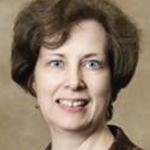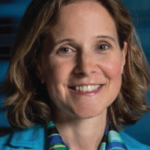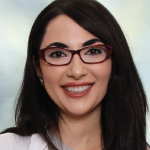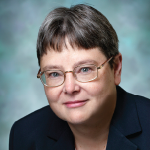ARHP Member Named to AOTF Board of Trustees (2018–20)
 Nancy A. Baker, ScD, MPH, OTR, recently took on a new role, joining the American Occupational Therapy Foundation’s (AOTF’s) Board of Trustees. The AOTF is a charitable organization with a mission to support scientific and educational programming for occupational therapy. It provides most of the grants and many of the scholarships that support OT researchers and scholars, and strives to increase public awareness and understanding of the importance of everyday activities (occupation) in health and well-being.
Nancy A. Baker, ScD, MPH, OTR, recently took on a new role, joining the American Occupational Therapy Foundation’s (AOTF’s) Board of Trustees. The AOTF is a charitable organization with a mission to support scientific and educational programming for occupational therapy. It provides most of the grants and many of the scholarships that support OT researchers and scholars, and strives to increase public awareness and understanding of the importance of everyday activities (occupation) in health and well-being.
Dr. Baker is an associate professor in the Department of Occupational Therapy at the School of Health and Rehabilitation Sciences, University of Pittsburgh. She is also an associate editor for OTJR: Occupation, Participation and Health. Her research interests are in the areas of work-related musculoskeletal disorders related to computer use, conservative treatments for carpal tunnel syndrome and work disability for people with arthritis.
She received her Doctor of Science in therapeutic studies at Boston University in 2000, and a Master of Public Health in epidemiology at the University of Pittsburgh, Graduate School of Public Health in 2009. Before obtaining her doctoral degree, she was a clinical therapist for 11 years, specializing in adult physical disabilities and industrial rehabilitation. She also trained in ergonomic assessment and intervention.
New Chair for Lupus Medical-Scientific Advisory Council
 The new chair of the Lupus Foundation’s Medical-Scientific Advisory Council is Karen H. Costenbader, MD, MPH. She is one of 37 members scattered across North America who advise the Foundation and guide the Board of Directors’ efforts “to advance lupus research and treatment, advocate constructive public policies and improve public and professional education,” according to the Council’s website.
The new chair of the Lupus Foundation’s Medical-Scientific Advisory Council is Karen H. Costenbader, MD, MPH. She is one of 37 members scattered across North America who advise the Foundation and guide the Board of Directors’ efforts “to advance lupus research and treatment, advocate constructive public policies and improve public and professional education,” according to the Council’s website.
As chair, Dr. Costenbader will help set the Foundation’s research agenda and review grant applications. She believes there’s a need to improve the involvement of the disadvantaged lupus-patient population in clinical trials. “Randomized placebo trials are not attractive to many patients,” she says. “If they are doing well, they’re not interested in possibly getting the placebo. If they are very sick, they don’t have the time: their lives are too full with coping.”
It is an exciting time to be involved in lupus research and treatment. In the past 50 years, there had been one new FDA-approved drug, she says, but now “there are new drugs in the pipeline.” As far as treatment goes, she sees a new push in professional development, including preceptorships, for practitioners who treat lupus. There is also more awareness of how important patient advocacy is for underserved, vulnerable communities. Not only are about 90% of lupus patients women, but a large proportion of them are non-white (e.g., black, Hispanic, Asian and Native American).
Dr. Costenbader is the director of the Lupus Program at Brigham and Women’s Hospital in Boston and professor of medicine at Harvard Medical School, where she received her MD. She also has a Master of Public Health from Harvard School of Public Health. She is an associate editor for the ACR’s journal, Arthritis & Rheumatology.
Lupus Foundation’s New President
 Stevan Gibson has been named the new president of the Lupus Foundation of America. Most recently, he was chief mission strategy and public policy officer for the ALS Association.
Stevan Gibson has been named the new president of the Lupus Foundation of America. Most recently, he was chief mission strategy and public policy officer for the ALS Association.
Back in the late 1990s, a mentor in Washington, D.C., suggested Mr. Gibson, the then-press secretary to the U.S. Treasurer, would be a good fit for the ALS Association’s new office that would open soon in D.C. “I don’t do healthcare,” Mr. Gibson recalls saying. “I don’t understand how nonprofits work.”
Soon after that, he took a leave of absence to care for his sister, who was ill with a rare form of cancer, in California. He met with some ALS representatives during his time in California. When he returned to D.C., he opened the new ALS Association offices in November 1997. His introduction to nonprofit healthcare was stark. The situation for ALS patients was worse than for cancer patients: “There were paths of diagnosis and treatment for cancer,” he says.
Fast forward 20 years: “Lupus is even less defined that ALS,” says Mr. Gibson. “Lupus is like a snowflake: It impacts people differently.” Yet there is only one therapy, he says. There must be more money for research to develop treatments for the spectrum of lupus symptoms. Mr. Gibson says it can take as long as five years and as much as $2.5 billion to develop a new therapy. “We cannot count on nonprofits to make that happen,” he says. “We must look to the government for more funding.”
In the meantime, the Lupus Foundation is coming out with a white paper on clinical trials and helping drug companies navigate the path to pharmaceutical approval.
New Rheumatologist in Sonora, Calif.
 After a childhood in Russia, Anna Khananian, MD, MBA, moved to Montreal and has continued her travels with a new job in Sonora, Calif., in the Sierra Nevada foothills. She is the rheumatologist at Sonora Regional Medical Center; the first in the area for several years. Dr. Khananian says she left Montreal because she wanted to experience something new. “I wanted to get my feet wet in new waters.” She wanted to know about being a care provider in the U.S., after her time under the Canadian system.
After a childhood in Russia, Anna Khananian, MD, MBA, moved to Montreal and has continued her travels with a new job in Sonora, Calif., in the Sierra Nevada foothills. She is the rheumatologist at Sonora Regional Medical Center; the first in the area for several years. Dr. Khananian says she left Montreal because she wanted to experience something new. “I wanted to get my feet wet in new waters.” She wanted to know about being a care provider in the U.S., after her time under the Canadian system.
Dr. Khananian’s experiential approach to life and work was evident in her undergrad years at McGill University in Montreal. She had already decided on medicine as a career, but worked as an EMS first responder to see if she liked hands-on treatment as opposed to pharmacology, for example. She chose the medical side instead of surgery because she likes the “demands of the theoretical process of thinking through the problems of multi-system diseases,” she says.
The complexity of the pathology made rheumatology attractive. “Dealing with chronic patients, you get to know them, to bond with them,” says Dr. Khananian. “At the end of the day, you’ve connected to people more than if you’d written a prescription for an antibiotic.”
The surprises she has encountered are the number of comormidities patients have and how warm and friendly everyone in California has been. She’s really liking California and just may stay.
Rheumatologist Moves to West Virginia
 Naseem Alexa Jahdi, DO, is now the sole rheumatologist at West Virginia University Medicine University Healthcare Physicians in Martinsburg, W.Va. She will be on staff at Berkeley Medical Center in Martinsburg and Jefferson Medical Center in Ranson, W.Va.
Naseem Alexa Jahdi, DO, is now the sole rheumatologist at West Virginia University Medicine University Healthcare Physicians in Martinsburg, W.Va. She will be on staff at Berkeley Medical Center in Martinsburg and Jefferson Medical Center in Ranson, W.Va.
Dr. Jahdi had been an attending physician for three years at rheumatology practices in Annapolis, Md., and Fredericksburg, Va. She decided she was ready to “give up the comfort of having others to lean on,” she says, “to move on with more autonomy to structure my practice the way I see best.”
During her third year at Lake Erie College of Osteopathic Medicine in Erie, Pa., Dr. Jahdi was getting ready to undertake a gastroenterology fellowship. She took a rheumatology course as an elective. “Within a matter of weeks,” she says, “I knew I wanted to be a rheumatologist. I couldn’t imagine doing anything else. I gave up the GI fellowship and started looking into rheumatology opportunities,” Dr. Jahdi says. “The whole dynamic of rheumatology care is something I hadn’t felt in other rotations.”
Her work provides her with satisfaction from the new developments in treatment that offer improvement to her patients’ quality of life.
Ann-Marie Lindstrom is an independent writer and editor based near Tucson, Ariz.



